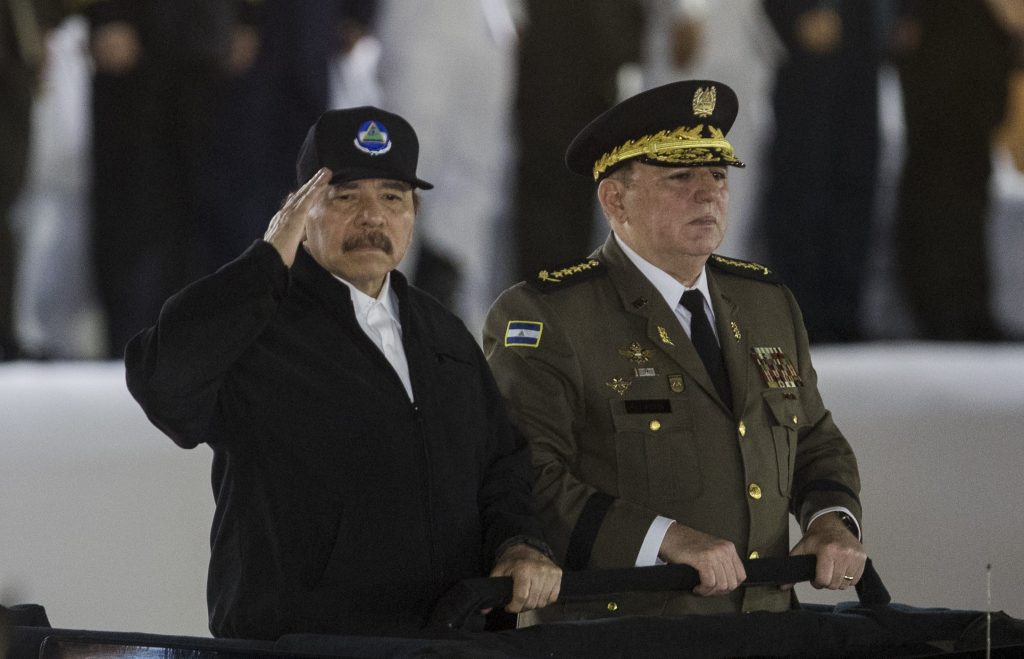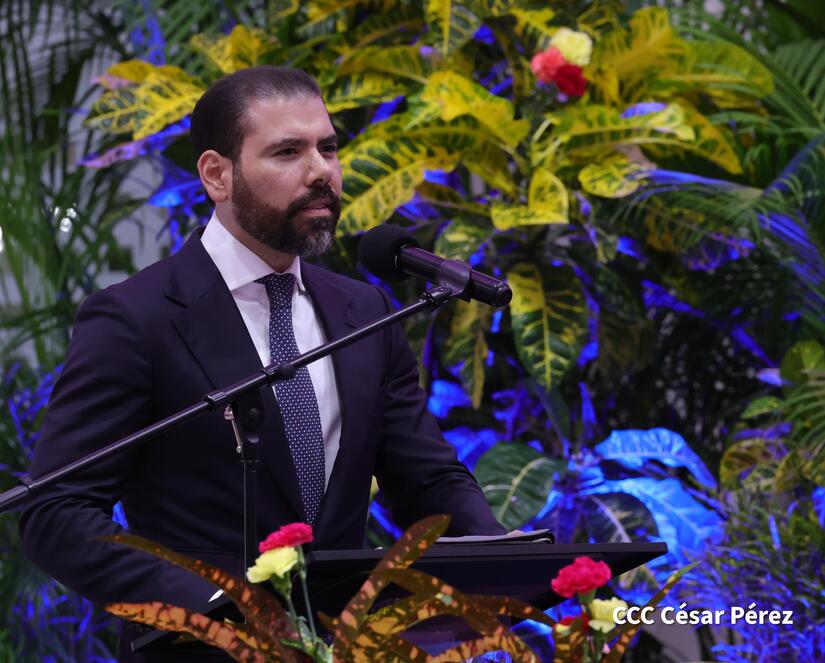The proposed Law for Protection Against Sanctions and External Aggressions, introduced on Wednesday, November 20, requires mandatory implementation by Nicaraguan banks as it is a national law. However, the response from the International Financial System remains uncertain, according to analysts and economists consulted by DIVERGENTES.
Manuel Orozco, a researcher at the Inter-American Dialogue, predicts that the law will compel Nicaraguan banks to comply, potentially even retroactively—such as by unfreezing or reopening accounts. In response, the U.S. Department of Justice and the Department of the Treasury could classify Nicaragua as a safe haven for sanctioned entities, effectively designating it as a high-risk financial zone.
“If this law is enacted,” Orozco explained, “Nicaragua is essentially labeling itself a rogue state,” drawing comparisons to countries like Venezuela, Iran, and Russia.
This designation would mean that the U.S. Department of the Treasury considers a country or entity to be operating outside the framework of sanctions restrictions. In such cases, it would notify violative banking institutions and simultaneously alert their correspondent banks.
Risk in operations with the United States
An economist, speaking on condition of anonymity, explained that this measure aims to pressure national banks into seeking financial markets beyond the United States, such as those in Russia or China—key international allies of the Ortega-Murillo regime. “This will significantly complicate trade operations with the United States, our primary trading partner,” the economist noted.
The expert emphasized that the legislation “puts trade with the U.S. at risk,” given that all transactions, exports, and imports are currently processed through the international financial system.

The law threatens with prison and fines
The proposed initiative nullifies the application of sanctions—primarily those imposed by the United States and the European Union—on Sandinista regime officials and political operators accused of human rights violations.
“In Nicaragua, sanctions imposed by states, groups of states, governments, or foreign entities that violate international law are declared null and void, with no legal effect,” states Article 4 of the proposal. “Such sanctions are invalid and inapplicable throughout the national territory, regardless of their nature or scope.”
Furthermore, the draft law asserts, “No entity or individual, under the pretext of sanctions, may deny or suspend the provision of private or public goods and services—whether commercial or financial—to individuals, private entities, or state institutions.”
These sanctions, in practice, impose sweeping financial restrictions—often referred to as “financial death”—on the sanctioned individuals and institutions.
The proposal goes a step further, threatening with fines for entities that fail to lift restrictions on sanctioned operators. It also warns of prison sentences and charges of “treason” for individuals or financial institutions that comply with international sanctions rather than the new law.
Since 2018, more than 100 Sandinista regime officials and political operators have been sanctioned, alongside state institutions such as the National Police, the Supreme Electoral Council (CSE), and the Nicaraguan Institute of Telecommunications and Postal Services (Telcor).
Article 5 of the proposal stipulates that “State regulatory entities must ensure that regulated institutions comply with the state’s legal framework. They may impose sanctions and fines, in accordance with their regulatory framework, on entities under their supervision that violate user and consumer rights by enforcing sanctions issued by states, groups of states, governments, or foreign entities.”
The proposed law even establishes a principle of retroactivity, requiring entities to compensate sanctioned officials for damages. This raises a series of questions: Will bankers lobby the U.S. on behalf of the regime to enforce only selective sanctions? Will they continue enforcing international sanctions instead of this law? Or will they comply with the new law despite the consequences?
This represents the regime’s second attempt to bypass international sanctions. In 2021, it ordered a reform of the Consumer and User Rights Protection Law to force banks to provide services to sanctioned individuals. However, that reform was less explicit and did not impose severe penalties for noncompliance, unlike the current proposal.

Banks trapped
Political analyst Eliseo Núñez explained that the law is designed to pressure bankers into lobbying on Ortega’s behalf in the U.S., presenting compliance with the national law as the lesser of two evils. Should banks adhere to international sanctions instead, the national banking system could collapse, potentially forcing thousands of Nicaraguans to migrate.
“If the U.S. yields to this argument, it would mark the end of sanctions’ effectiveness—not just in Nicaragua, but worldwide,” Núñez warned.
Economist and former political prisoner Juan Sebastián Chamorro described the situation as leaving Nicaraguan bankers “trapped.”
“This creates a significant dilemma for the financial sector. On one hand, they’re legally required under national law to maintain or reopen accounts for sanctioned individuals. On the other hand, international regulations strictly forbid banks from doing so. It’s an incredibly complex and precarious situation,” Chamorro explained.
Economist Marco Aurelio Peña agreed that this initiative would create significant challenges for the national banking system. “After years of substantial profits, this will push bankers out of their comfort zone as they face the decision to comply with national law while defying international norms,” Peña added.
Peña also pointed out that the law, imposed by the executive branch and quickly approved by the legislature without thorough analysis, lacks legitimacy. “This law contradicts fundamental legal principles and international norms. However, banks are part of the international financial system, which operates within a global economic framework. This system extends beyond Nicaragua’s reality, where an autocracy is gradually evolving into a totalitarian regime,” Peña observed.

Did the regime consult with banks?
An economist who spoke on condition of anonymity suggested that the Ortega-Murillo regime may have consulted with Nicaraguan bankers before submitting the proposal to the National Assembly. According to this theory, the bankers might have advised that only with a law like this could accounts for sanctioned entities or individuals be unfrozen or reopened.
Peña, however, expressed no doubt that if the banks choose to comply with this law, they will face repercussions from the international financial system. “If this happens, the national financial system itself could be subject to sanctions or restrictions from international financial organizations,” he warned.
In this scenario, Peña believes Nicaragua’s economy would shift from an open market to a semi-open one. “At that point, the alliance between the regime and the bankers could break down. Their interests won’t always remain aligned,” he concludes.





